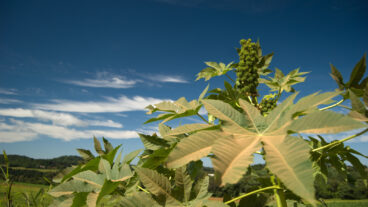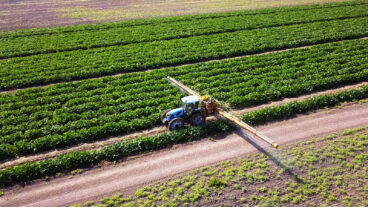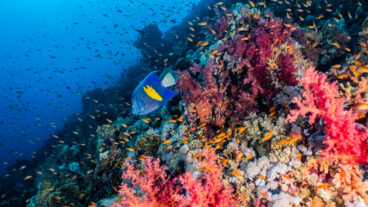TIME Magazine voted him one of the 100 most influential people of 2008. Now Israeli Isaac Berzin has returned to Israel from the US to set up a new biofuel powerhouse in Israel.
While Israel has some of the world’s most promising clean technology companies for producing renewable energy — consider Ormat and its geothermal power station in Nevada or Solel’s solar energy plant in the Mohave Desert – proving viability on Israeli turf has been a sore spot for inventors and would-be international and local investors.
Lack of policy and infrastructure in the Israeli government stalls the rapid implementation of new clean technologies. This harms not only Israelis who need cleaner, alternative fuel sources, but it is a disservice to the environment and people around the world, who would readily adopt this tiny nation’s innovative solutions if proven they could work.
Thanks to a little green vision in the form of algae, Isaac Berzin, the founder of GreenFuel Technologies in Cambridge MA, has returned to Israel to help turn Israeli ingenuity into action. Now a senior fellow at the Interdisciplinary Center (IDC) in Herzliya, Berzin has plans to build a new Institute for Alternative Energy Policy in Israel under the IDC.
Berzin looks to collect the best-fit alternative energy solutions from across academia and the industry in Israel – about 10 different technology platforms – to build a center of excellence, “10 times bigger and stronger than GreenFuel,” Berzin tells ISRAEL21c
Recently voted as a Time Magazine most influential person for 2008, if anyone could build a biofuel powerhouse in Israel it would be Berzin, who has a kind of rock star popularity in the US for his work with GreenFuel. Continuing on as an advisor in the company, he says, “GreenFuel is doing great, the baby is walking now.”
The father of three, who now lives in Jerusalem, sees the importance of creating a real solution to end the world’s dependence on oil within the next few years. If it’s not found, in 10 years he says, the planet will have “reached the point of no return.”
Taking advantage of Israeli technology and research, Berzin is planning to have a serious biofuel solution ready within five years. While there is no one silver bullet solution, he admits, Israel has all the tools to start making a renewable fuel alternative.
Israel’s toolbox includes decades-long research into water technologies and grey-water irrigation, and the know-how for taking advantage of low-quality land and growing crops on brackish water. “Algae can grow in salt water, with sewage and on any type of land quality,” says Berzin. “The world is moving to a ‘grow your own solution’ for energy crops, and there is no reason why Israel shouldn’t be a leading country in this field,” he says.
The new institute he is currently setting up, will develop sustainable and strategic global alternative energy policies and will collaborate with the Institute for the Analysis of Global Security (IAGS) based in Washington, where Berzin is also a senior fellow.
A representative from the IAGS wrote ISRAEL21c, “[We] congratulate senior fellow Dr. Isaac Berzin for his inclusion in TIME Magazine’s 2008 list of the world’s 100 most influential people. Berzin received this honor for his important scientific contribution to the development of alternative fuels and for his leadership role in the global movement to end the world’s oil dependence.”
Earlier this month, Berzin signed a memorandum of understanding with the National Energy Technology Laboratory of the US Department of Energy as an “honest broker” for helping his new institute choose what technologies and research to implement. The institute, after all, is expected to be a moneymaking endeavor as well.
According to Berzin, investing in the clean fuel solutions of oil-rich algae is a “zero-risk exercise. The solution is attractive, because I am not punishing the industry. The world is moving to producing its own energy crops. Algae for biofuel is (finally) an economically viable solution. It is also a moral solution – not competing with food crops on valuable resources such as fertile land and potable water.”












